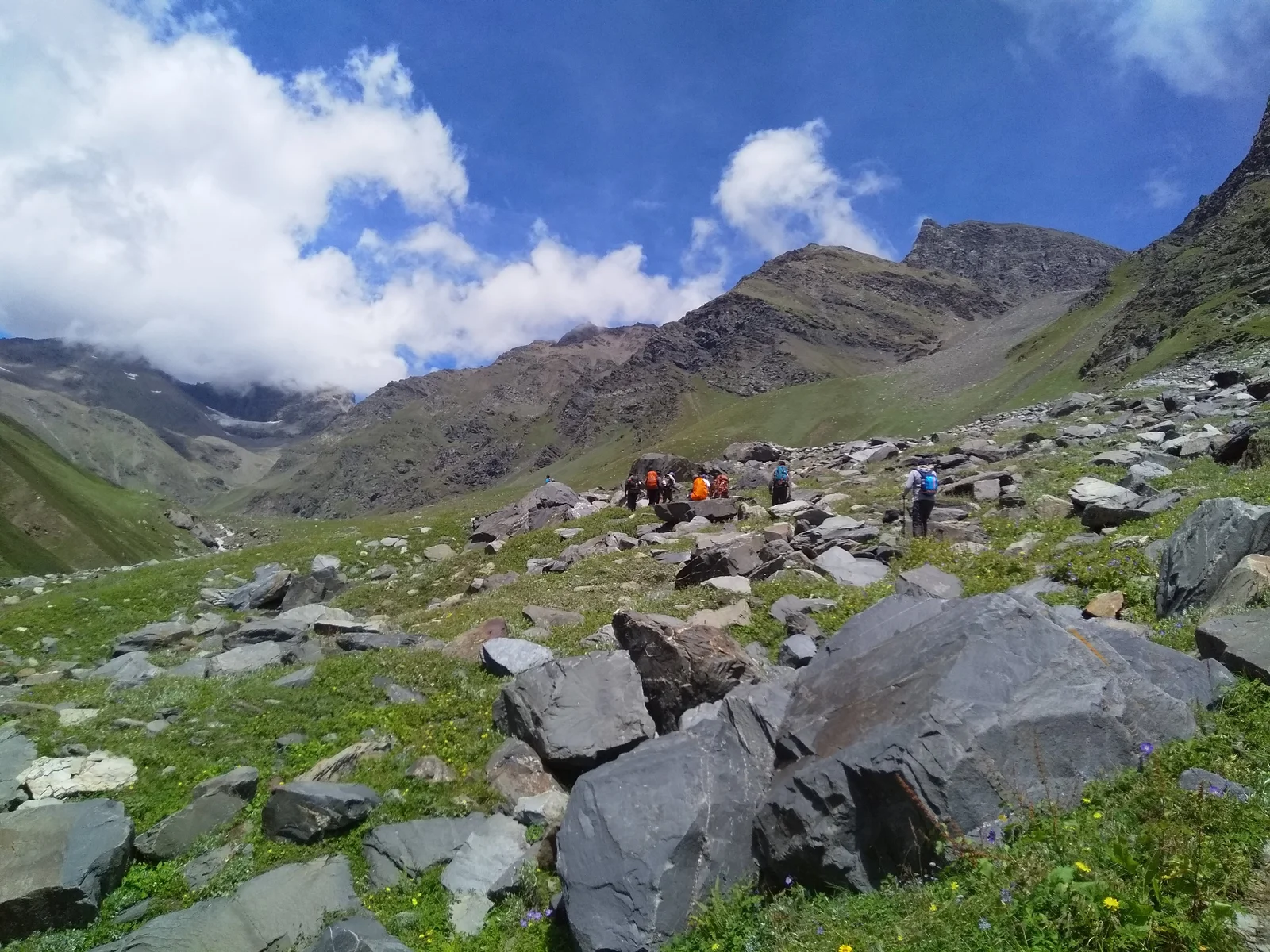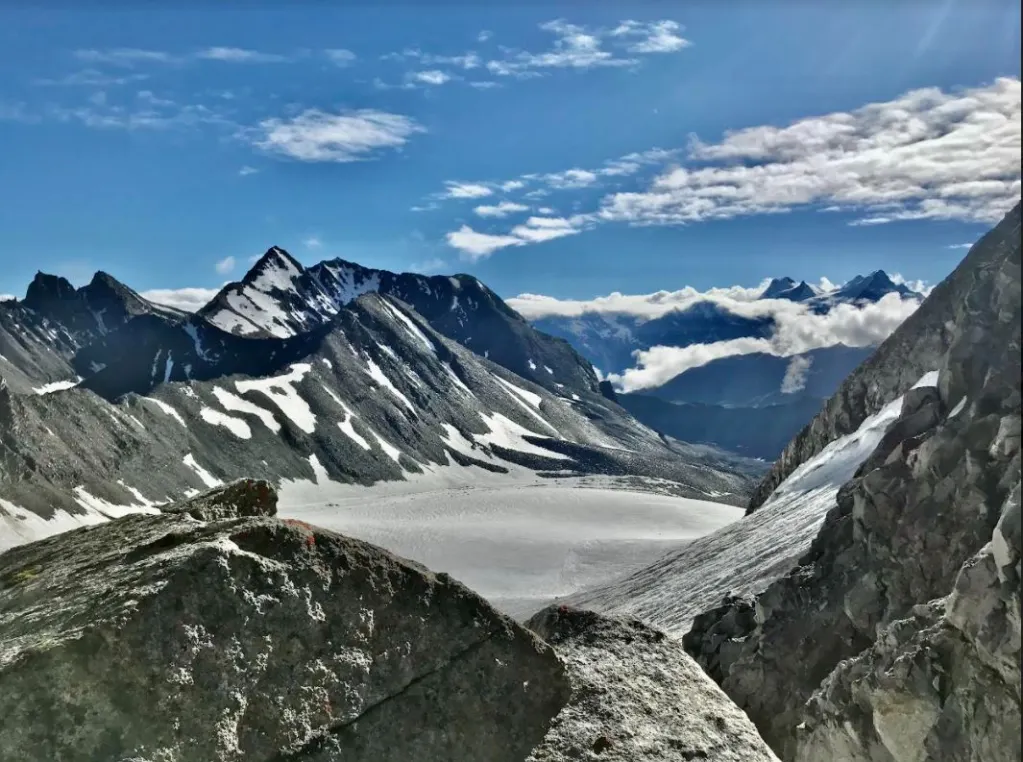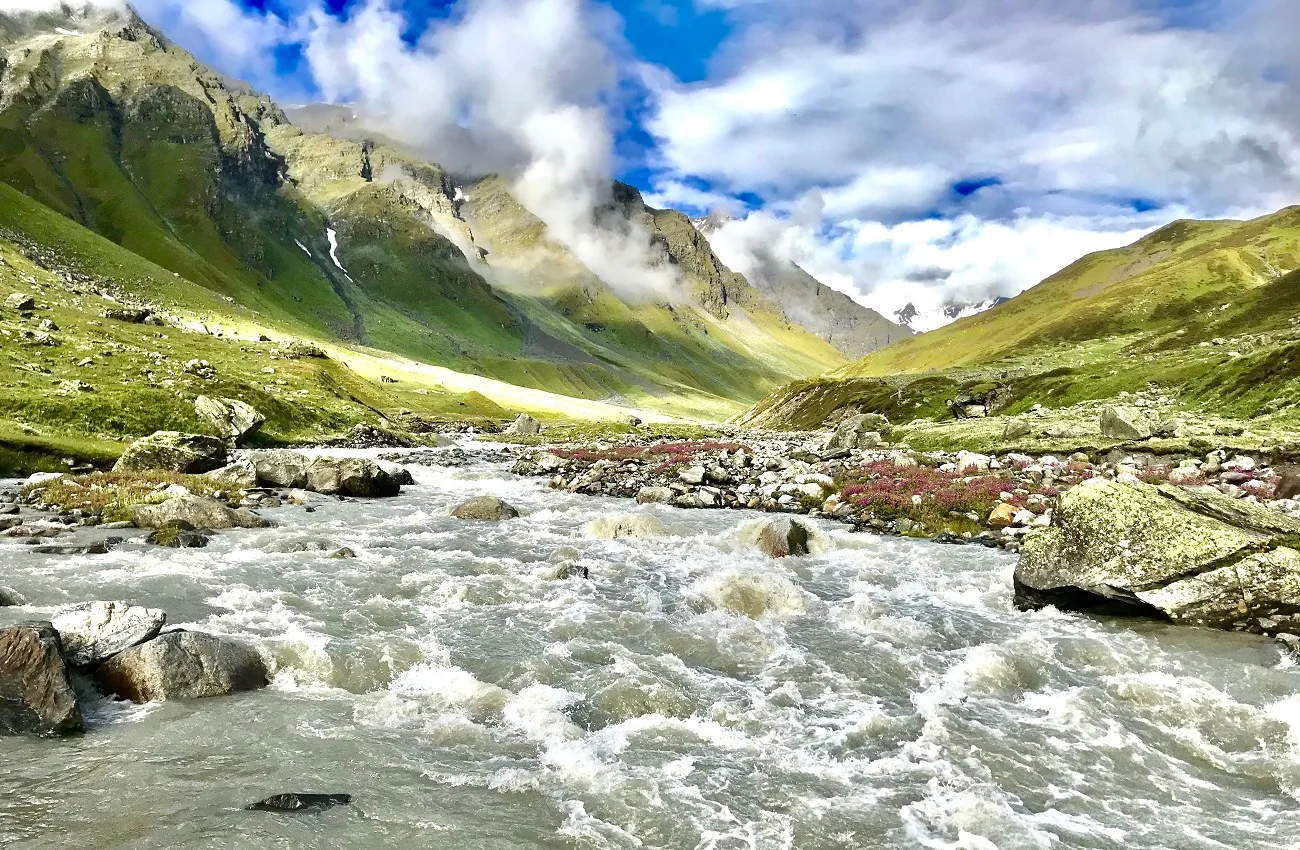
Khimloga Pass is one of the least explored and most challenging high-altitude passes in the Garhwal Himalayas of Uttarkashi, Uttarakhand. Situated at an altitude of 5,607 meters (18,396 ft), the pass connects the remote Tons Valley (Har Ki Dun–Osla region) to the Baspa Valley (Chitkul side) in Himachal Pradesh. Very few expeditions have crossed this pass due to its remoteness, glacial terrain, and technical difficulty.
This trek is for seasoned mountaineers and high-altitude explorers who seek untouched trails, raw adventure, and complete isolation in the Himalayas.
Khimloga Pass offers the rare experience of traversing an unmarked, high-altitude corridor once used by shepherds and traders. With no defined trail, this trek leads through dense forests, glacier fields, moraines, and steep ice slopes, offering a raw and demanding experience that few treks in India provide.
You’ll witness uninterrupted views of Swargarohini, Black Peak (Kalanag), Bandarpunch, and multiple unnamed peaks, while crossing through virgin meadows, deep valleys, and technical snowfields.


Region: Govind Pashu Vihar National Park
District: Uttarkashi, Uttarakhand
Altitude: 5,607 meters (18,396 feet)
Starting Point: Osla/Seema (Tons Valley)
Exit Point: Chitkul (Baspa Valley, Himachal Pradesh)
Very Difficult / Technical – Recommended only for:
Experienced trekkers or mountaineers with prior knowledge of glacier navigation
Physically fit individuals capable of carrying personal gear for long durations
Teams with technical climbing equipment and knowledge (crampons, ice axe, ropework)
Guided expeditions with satellite tracking and full logistics support
The best (and only viable) seasons to attempt the Khimloga Pass are:
Mid-May to June: Early summer conditions, moderate snow, and stable weather
Mid-September to October: Post-monsoon clarity, fewer crevasses, and low avalanche risk
Monsoon season (July–early Sept) is highly dangerous due to slippery terrain and rockfalls. Winter (Nov–April) is not suitable due to heavy snow accumulation and inaccessibility.
Cross a virgin pass rarely attempted by trekkers or commercial groups
Spectacular views of Garhwal and Kinnaur Himalayan peaks
Trek through uninhabited valleys, hidden meadows, and uncharted glaciers
Raw wilderness – no marked trails, no crowds, just nature in its purest form
Connects two culturally rich regions: Tons (Garhwal) and Baspa (Kinnaur) valleys
Day 1: Drive from Dehradun to Sankri (~8–9 hours)
Day 2–3: Trek from Sankri to Osla and Camp I
Day 4–6: Trek to advanced base near the glacier (load ferry and acclimatization)
Day 7–8: Attempt Khimloga Pass crossing (weather-dependent, technical climb)
Day 9–11: Descend into the Baspa Valley towards Chitkul
Day 12–13: Buffer/rest days or emergency weather windows
Day 14: Drive from Chitkul to Shimla/Dehradun
(Requires pre-arranged technical team, logistics, and mules/porters)